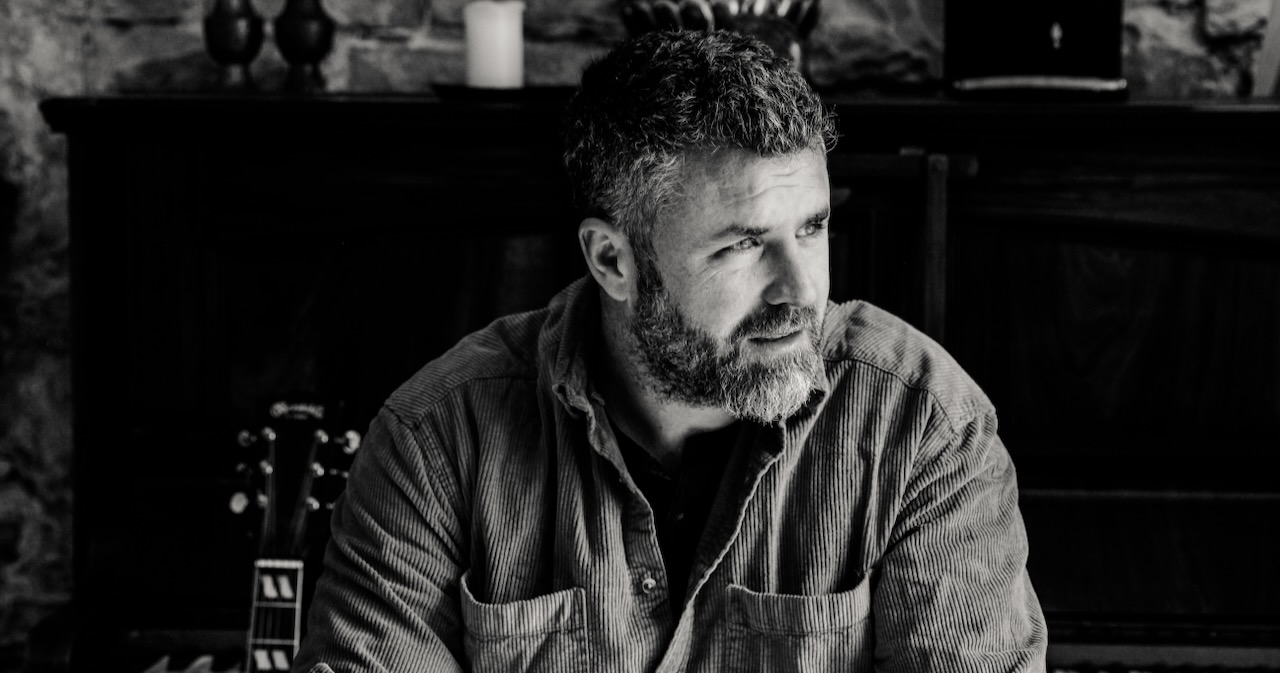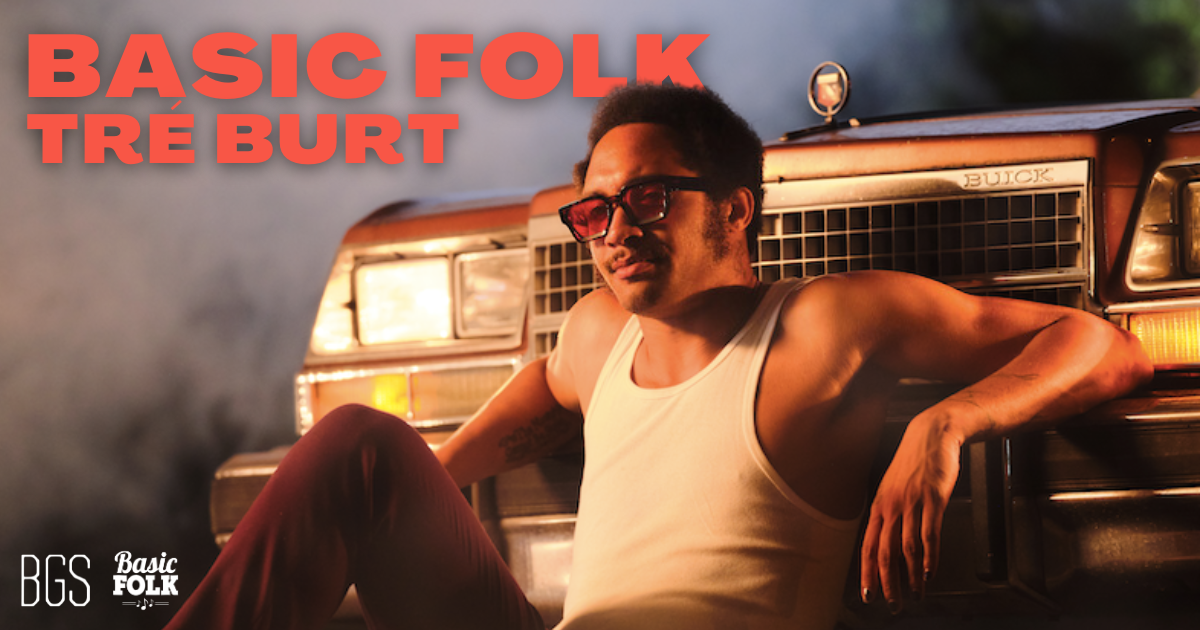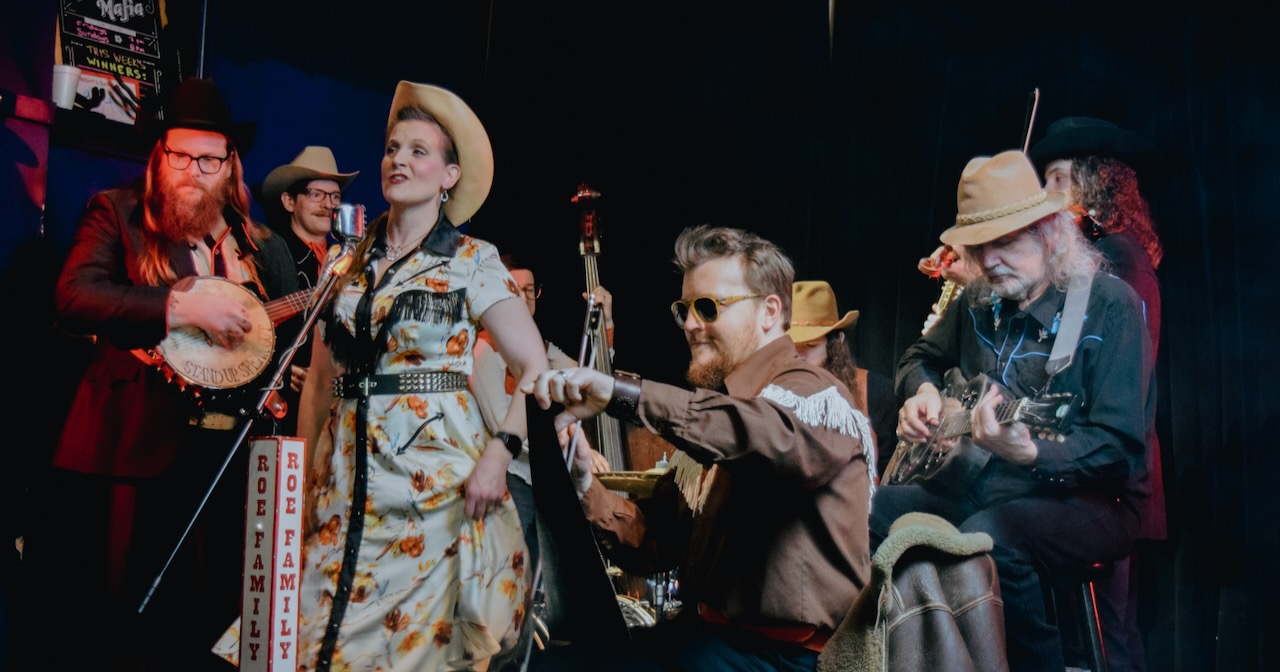Most songs stay in one musical scale or “key.” In this key there are 6 chords which are widely used. The 1 chord is the root chord, usually used to end the song and give a definite feeling.
Chords 2 and 3 are sad sounding minor chords in most cases. Chord 4 and 5 often give a feel of expectation to the ear, willing the melody back to the root (1) chord. The 6 chord is a relative minor to the root, often sad sounding.
In my opinion, some of the most successful moments of empathy occur when the feel of the chords and melody marry in harmony with the meaning of the lyrics. The lyrics themselves can also provide a musical feeling, the choice of vowels can marry to emotions, the consonants selected can give a nod to drum-like rhythm. I will try to give some examples here. – Mick Flannery
Bob Dylan – “Changing of the Guards”
Dylan uses a mixture of metaphors for social struggle and revolution in this epic song. The frequent use of the root chord and its relative minor at the end of phrases helps to add weight to the lines. This gives the song a definite feel, as he is ending on these strong chords as opposed to chords 4 or 5, which suggest a question unanswered.
Bob Dylan – “Baby, Stop Crying”
An example of melody marrying to feeling. The line, “Please stop crying,” is expressed with a longing in the melody concurrent with the meaning of the words. Also, “You know, I know, the sun will always shine” has a comforting feel in the melody with the word “shine” being on the root chord, helping it to sound definite and consoling.
Adele – “Someone Like You”
The top of the chorus in this song works very well between meaning and melody. The word “nevermind” is dismissed in quick order, as it would be in common parlance, giving a natural, talkative feel. The internal rhyme of “mind” and “find” gives a rhythmical feel to the line as a whole, allowing the listener to imagine a snare sound on the “I” vowels. The use of this internal rhyme makes the song universally easy on the ear, even to non-English speakers.
Lana Del Rey – “Video Games”
“It’s you, it’s you, it’s all for you, everything I do…” This whole line is placed on a 5 chord, which gives a feeling of something needing to be resolved, so the listener doesn’t know if the narrator is placing her trust in the right place.
“I tell you all the time” lands on a 4 chord – again, an expectant feel – making the listener wait for the line, “Heaven is a place on earth with you” landing on the 1 chord. This gives a definite note to the feeling, but narratively the listener is still left unsure if the feeling is requited, owing to the amount of time spent on uncertain footing in the melody.
Arctic Monkeys – “Fluorescent Adolescent”
The quick, rap-like nature of the verses are aided by the use of short vowels (“I” “E”) and short-sounding consonants like “T” and “K.” The line, “Flicking through your little book of sex tips,” almost sounds like a rhythm played on a high-hat, because of the choice of words.
Tom Waits – “Martha”
The chorus here leans on long vowels to intone nostalgia, “Those were days of roses, poetry and prose and… no tomorrow’s packed away our sorrows and we saved them for a rainy day.” The choice of words echoes a longing and almost sounds like a groan of regretful realization, as per the theme of the song.
Blaze Foley – “Clay Pigeons”
In this soft and low intoned song, Foley utilizes “T” and “K” with short vowels to inject a spot of rhythm in the line, “Gonna get a ticket to ride.” The line, “Start talking again when I know what to say,” lands on a 4 chord which has an unresolved feel, marrying well to the meaning of the line, wherein we hear that the narrator has not yet reached a certain point.
Anna Tivel – “Riverside Hotel”
“Someday I’m gonna laugh about it, looking down from heaven’s golden plain,” moves from the 4 to the 1 and then 4 to 5. “Someday” marries nicely with the unresolved feel of the 4 chord. Ending on the 5 leaves the listener waiting for a resolve, which comes on the root chord in the line: “But for now I’ve found some piece down by the water, just to watch a building rise up in the rain.” This line uses a root chord on “for now” which gives a reassuring, steady feel concurrent with the sentiment.
Anna Tivel – “The Question”
The title of this song in itself sets the listener up for an unresolved feeling. The use of long “A” sounds (razor, saved, saving, hallelujah waiting, raise, etc.) leading up to the line, “A prayer that never mentioned,” works very well, as it sounds like an expectant chant. On the last words, “The glory of the question and the answer and the same,” the word “glory” lands strongly on the sad sounding relative minor chord, while the line ends on an expectant 5 chord. This gives a juxtaposition, the narrator has seemingly answered a question, but also left it open to further thought because of the use of this uncertain chord underneath.
Eminem – “Lose Yourself”
This song is a masterclass in internal rhyme. The lines of the verses are so phonetically intertwined that they begin to sound like the components of a drum kit. This is easy for the human ear to digest even in an unknown language. The fact that the lines make perfect sense narratively is the “icing” achievement.
Tom Waits – “Hold On”
Long vowels in the chorus marry to the meaning of patience and perseverance. In meditation, long vowels are used in calming chants, which is echoed here in the repetition of “Hold on.” This feel is broken up slightly by the words “take my hand” where Waits accentuates the “T” and “K” to give a burst of drum-like rhythm.
Photo Credit: Susie Conroy









